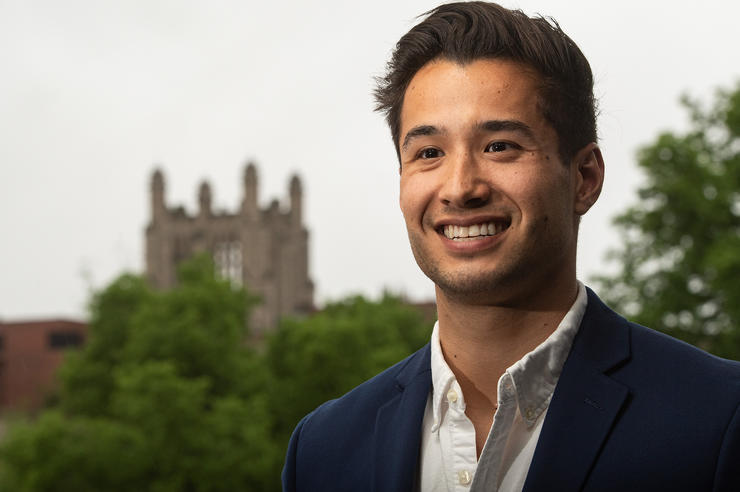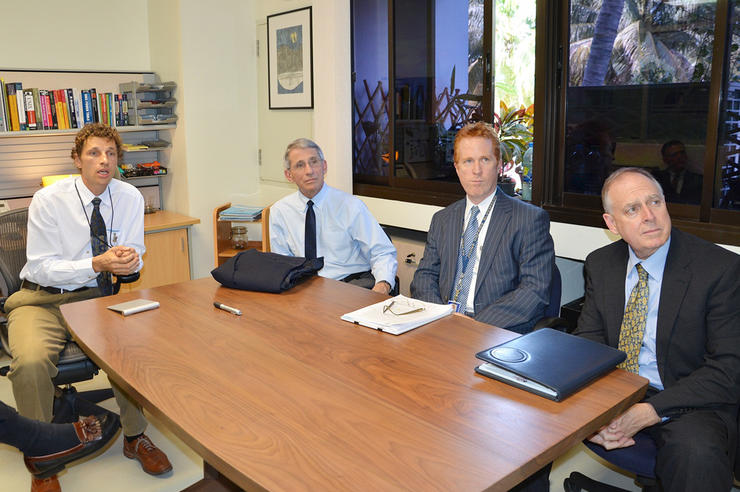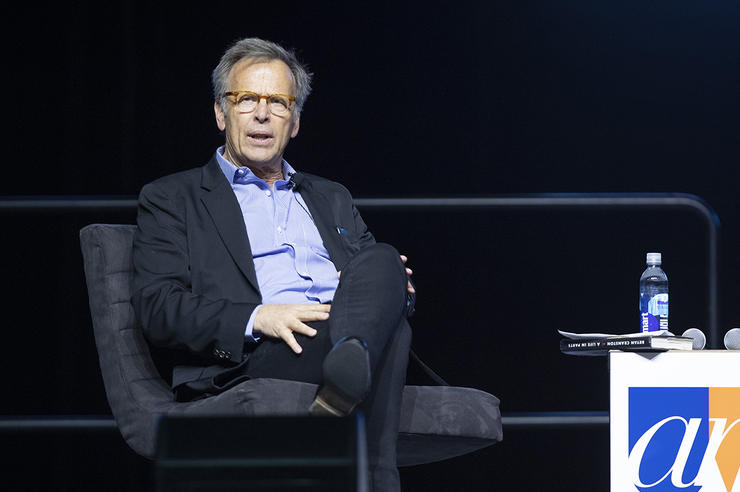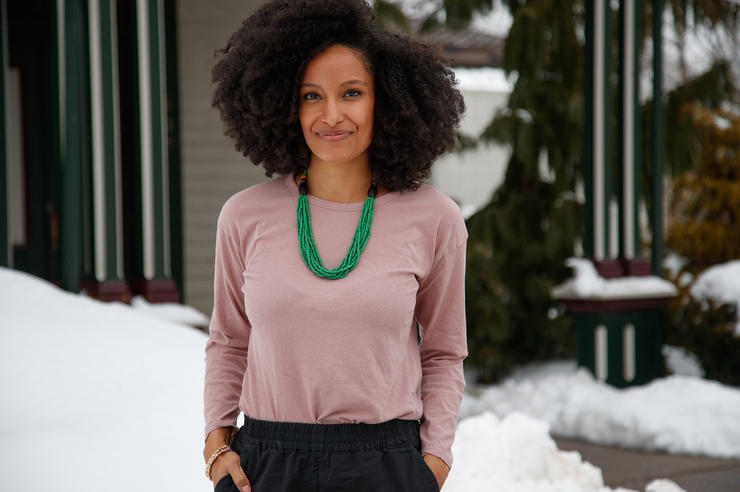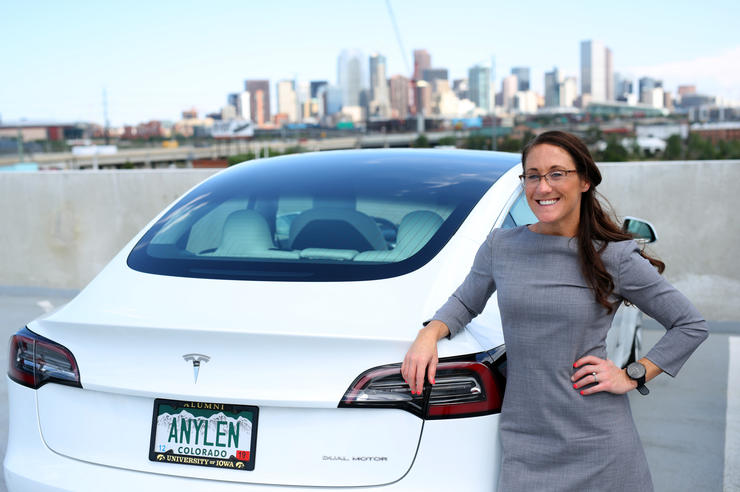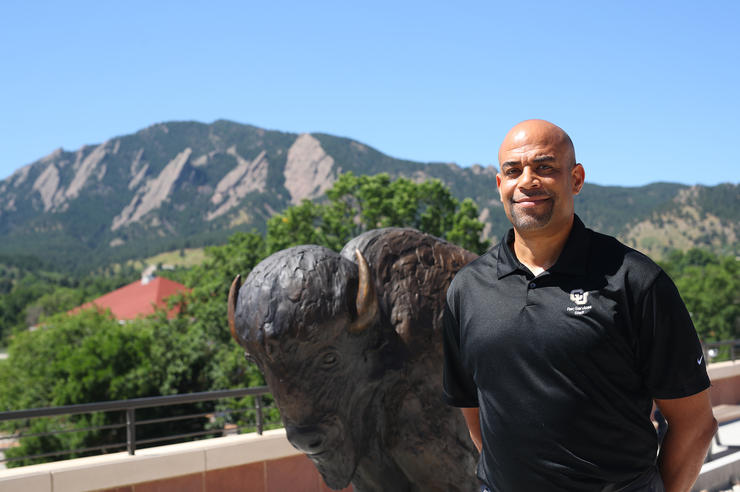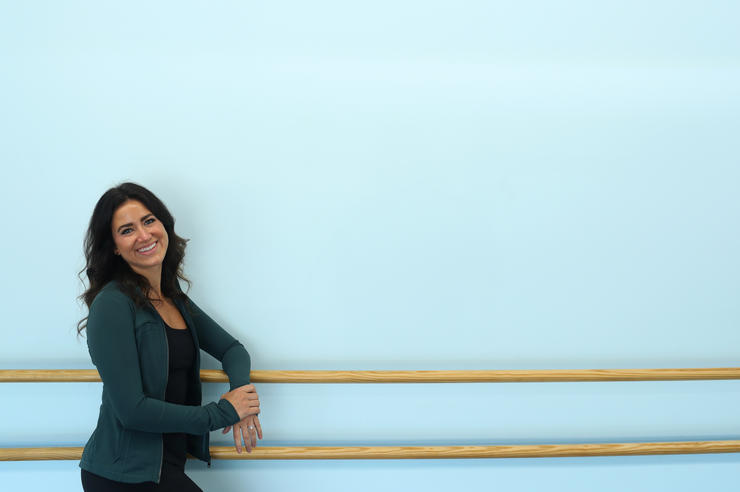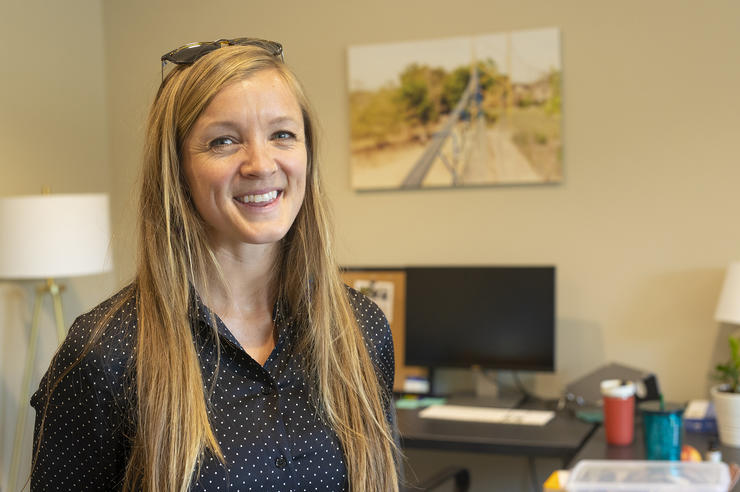Putting people on equal footing
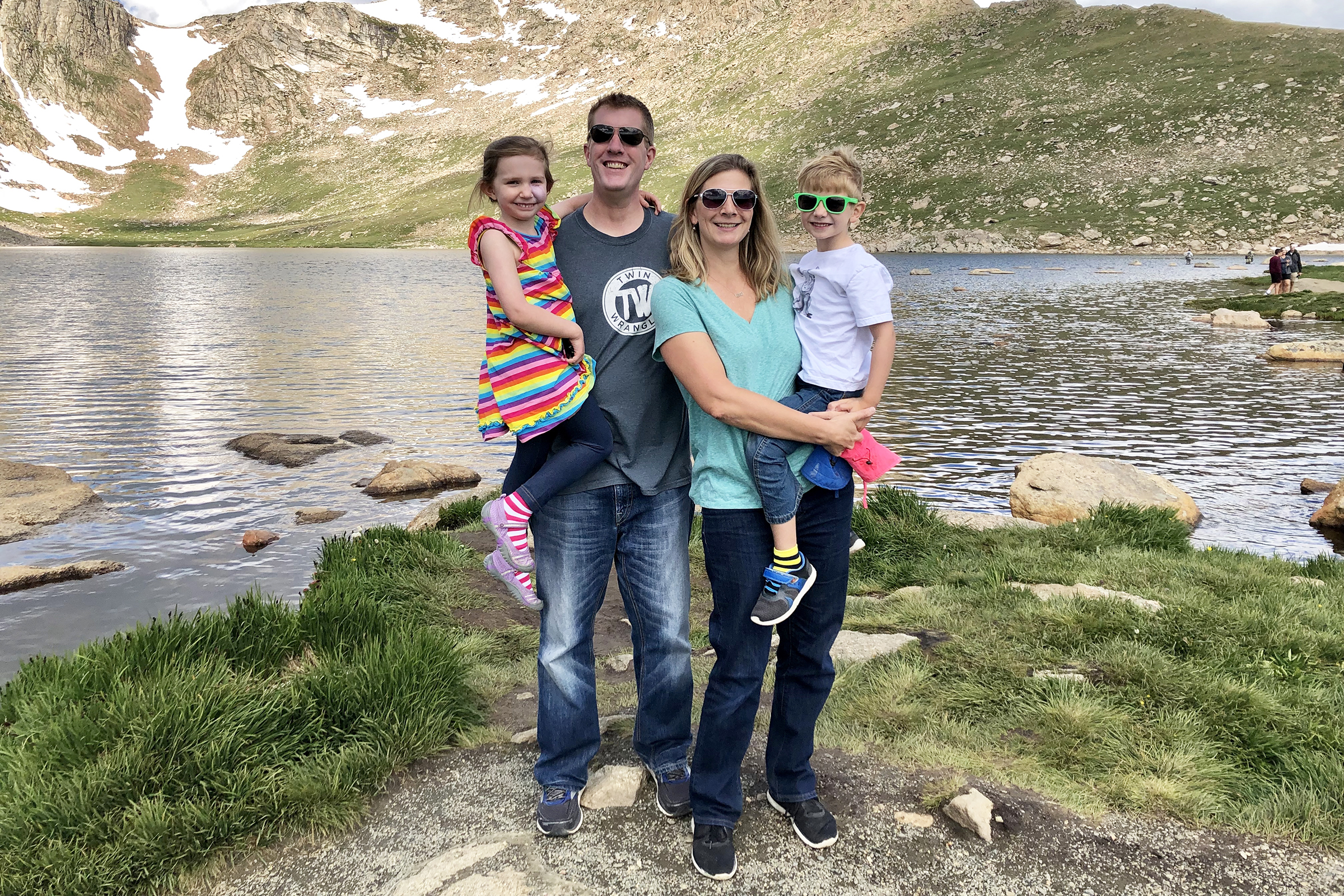
University of Iowa alumna Kelly Wilson Bossley poses with her husband, Trent, and their children, Lydia and Nolan, in Colorado. Bossley works as the associate director of the Legal Aid Foundation of Colorado, the fundraising arm of the statewide organization that provides free legal services every year to about 25,000 low-income clients.
Storm Lake was a fairly typical small town in Iowa when Kelly Wilson Bossley moved there in seventh grade. Its economy was geared toward agriculture, it was a county seat, and its meatpacking plant employed hundreds. The population was overwhelmingly white.
But when Bossley graduated from Storm Lake High School six years later, the town had changed dramatically. By then, nearly 50% of the population was not white, with newcomers brought to town as labor by the owner of the meatpacking plant. Most spoke little, if any, English, and many were poor and needed government assistance to survive.
The changes didn’t go over well with many. “I saw lots of injustice, lots of racism, and discrimination,” says Bossley. “I felt it was unfair, and I wanted to do something about it.”
So, Bossley decided to pursue public interest law and help those who were victims of discrimination. It eventually took her to the University of Iowa, for degrees in journalism, history, and law, and from there into a career working for agencies that try to right social wrongs.
“It really became a calling for me to help people be treated fairly and to do my best to put people on an equal footing,” says Bossley. She received her Bachelor of Arts degree in journalism and history in 2000 and her law degree in 2003. She then moved to Washington, DC, and joined Equal Justice Works, eventually overseeing the organization’s attorneys working on the Gulf Coast helping the victims of Hurricane Katrina who needed legal assistance.
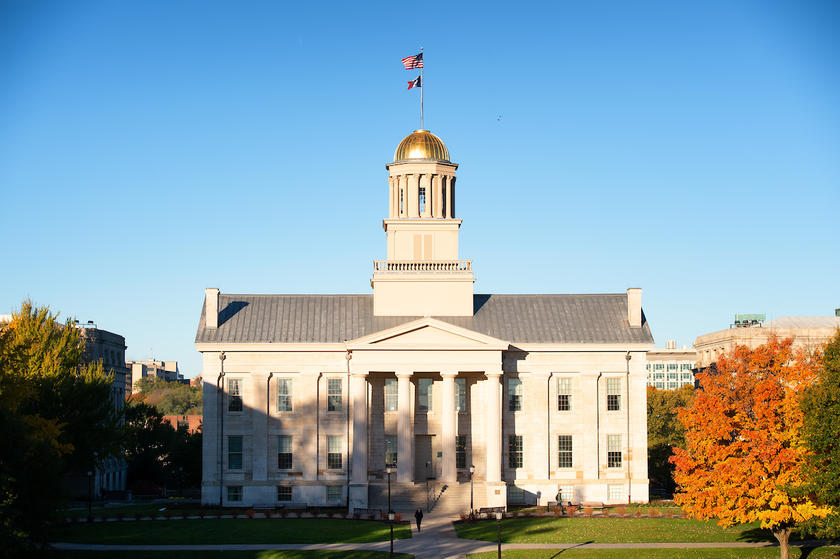
Iowa will prepare you, challenge you, and change you. You will change the world. We accept applications year-round.
Bossley later moved to Denver and has worked since 2010 as the associate director of the Legal Aid Foundation of Colorado, the fundraising arm of the statewide organization that provides free legal services every year to about 25,000 low-income clients usually living paycheck to paycheck. Most of the legal work they need is for basic necessities, she says: apartment evictions, unlawful firing from a job, and help receiving government benefits they’re entitled to, such as Medicare, Social Security, or Supplemental Nutrition Assistance Program (SNAP).
“Our clients are people who are on the margins,” she says. “They’re just trying to keep a roof over their heads and keep their kids fed. They don’t have a lot of savings and are struggling in so many ways, so what might be a speed bump for a middle-class family could be a catastrophe for them.”
She expects the need for her foundation’s services to skyrocket in the coming months as legal issues faced by many on the margins are magnified by the COVID-19 pandemic.
As associate director, she raises money that pays the salaries of the 60 staff attorneys who work in the organization’s 13 offices. Since 60 isn’t nearly enough to handle all the work, she also recruits attorneys to fill in the gaps and represent clients pro bono. She’s the organization’s communications director too, writing press releases, blog posts, and other communications using the skills she learned as an Iowa journalism major.
As a student, Bossley worked as a reporter and news editor for The Daily Iowan, covering the 2000 presidential caucuses, the election of Tom Vilsack as governor in 1998, and the Students Against Sweatshops protests. Her posterity is her byline on the wall of headlines in the DI newsroom.
“Our clients are people who are on the margins. They’re just trying to keep a roof over their heads and keep their kids fed. They don’t have a lot of savings and are struggling in so many ways, so what might be a speed bump for a middle-class family could be a catastrophe for them.”
In the College of Law, she fine-tuned the direction of her future career by working with professors like Adrien Wing, Burns Weston, Mark Sidel, and Joe Knight—all deeply committed to social issues. She says Randall Bezanson in particular taught her how to think in new ways in his Constitutional Law classes, and she still uses what she learned in Willard “Sandy” Boyd’s Nonprofit Law class to help her lead the Legal Aid Foundation.
Bossley was also an active volunteer during her seven years at Iowa, a commitment she inherited from her mother. A professor of English at Buena Vista University, the elder Bossley was active in numerous organizations around Storm Lake and made sure her daughter knew it was important to give back to one’s community.
At Iowa, Bossley volunteered for the Emergency Housing Project, Ronald McDonald House, and Dance Marathon, and she was philanthropy chair of the Chi Omega sorority. She was president of the College of Law’s Equal Justice Foundation and helped organize its annual LawLawPalooza concert, which raised money to help law students interning for public interest organizations pay their bills.
That hasn’t changed in Colorado, where Bossley volunteers for organizations that fight hunger and homelessness. She was also president of the Mothers of Multiples Society and serves as an ambassador for the Vascular Birthmarks Foundation. Those two are particularly close to her heart, as she has 6-year-old twins, Nolan and Lydia, and Lydia has a port-wine stain birthmark on her face. Lydia’s response to a preschool classmate’s reaction after a treatment to keep her birthmark healthy went viral several years ago.
“Giving back gives your life purpose, and selfishly, it gives you a sense that what you’re doing is helping someone in a real way,” she says.
Bossley says that not only did she get a great education at Iowa, it came at a reasonable price, with seven years of in-state tuition. While many students graduate with six-figure debt from law school alone, she had very little, which gave her ample flexibility to pursue the career she wanted.
“I didn’t graduate with a ton of debt, and I couldn’t do public interest law if I had,” she says.
